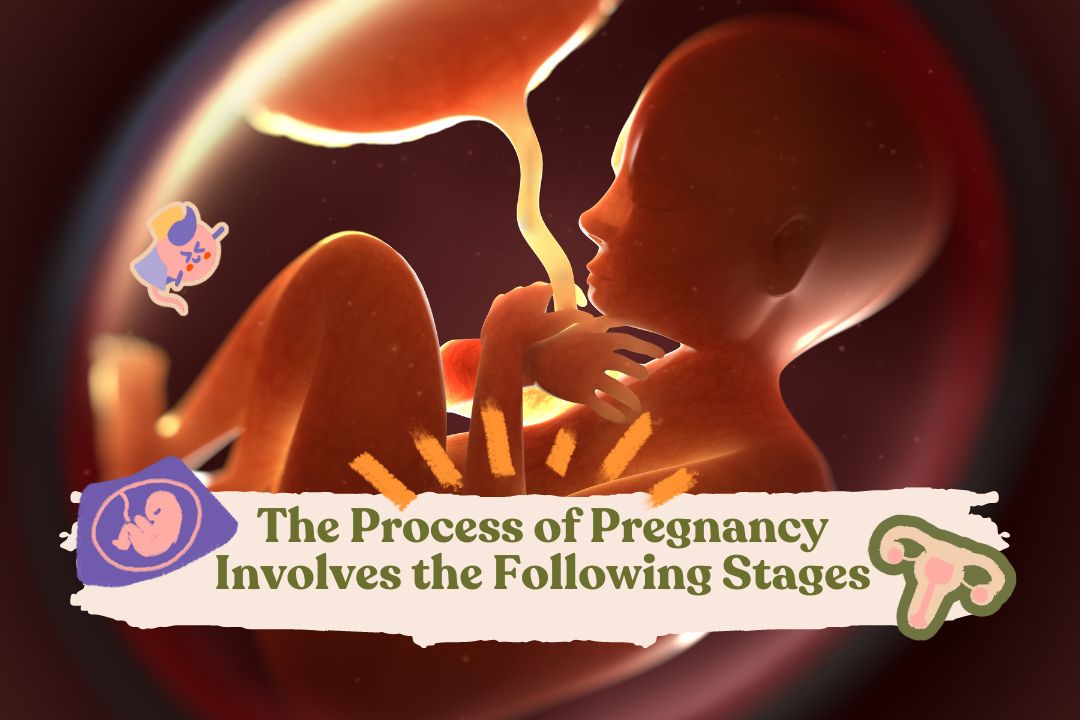Frequent Urination as a Sign of Pregnancy?

It is said that if a woman frequently urinates, it could be one of the signs of pregnancy. However, let’s find out more facts about this.
Generally, frequent urination throughout the day is associated with urinary tract issues or urinary tract infections (UTIs). However, urinary tract infections can also indicate pregnancy.
Learn the facts about why women experience increased frequency of urination during pregnancy and how to manage urinary discomfort during pregnancy through this article.
Is Frequent Urination Really a Sign of Pregnancy?
In reality, when a woman is pregnant, significant hormonal changes occur in her body. Increases in hormones such as progesterone and human chorionic gonadotropin (hCG) can affect various parts of the body, including the urinary system. As a result, the bladder can fill up more quickly, leading to the sensation of needing to urinate more often.
Some women might experience mild changes, while others might feel the need to urinate constantly throughout the day and night. Nevertheless, not all pregnant women experience a significant increase in urination frequency, and that is considered normal.
Tanya Mincah tentang Promil?
Frequent urination usually occurs early in pregnancy but can also reappear later during pregnancy. This happens because the uterus and the baby continue to grow, putting pressure on the bladder.
Although frequent urination can potentially be a sign of pregnancy, it’s essential to remember that it can also be caused by other factors, such as increased fluid consumption or other medical conditions. To be sure, you can take a pregnancy test for more accurate results.
Pregnant women who experience fever or chills along with a burning sensation while urinating should seek medical attention promptly, as this could be a urinary tract infection (UTI). Other symptoms include lower back pain or a sudden increase in the urge to urinate.
According to research from the Centers for Disease Control and Prevention (CDC), about 8% of pregnant women experience UTIs. If left untreated, UTIs can pose serious health risks for both pregnant women and developing fetuses.
Common Urination Symptoms in Pregnant Women
While pregnancy symptoms can vary, many pregnant women feel the need to urinate more frequently during the first trimester, weeks 1 to 12 of pregnancy.
Some women may also experience leakage or stress urinary incontinence (SUI) during pregnancy as the fetus grows and puts pressure on the bladder, urethra, and pelvic floor muscles.
According to Medical News Today, several factors can lead to urine leakage during pregnancy:
- Sneezing
- Coughing
- Laughing
- Exercising Lifting heavy objects
Sometimes, symptoms of frequent urination can indicate underlying conditions such as urinary tract infections (UTIs). Apart from urgency, other symptoms of UTIs include:
- Blood in the urine
- Cloudy or foul-smelling urine
- Lower abdominal pain Nausea Pain or burning
- Sensation during urination
- Loss of bladder control
On average, a person uses the bathroom around 6 to 7 times a day, although this number can vary depending on fluid intake and how often they drink. Urinating between 4 to 10 times a day can also be considered normal, depending on the individual’s health and comfort level with their urination frequency.
For pregnant women, the number of times they urinate will also depend on their normal size. For instance, if someone usually urinates 8 times a day, they might urinate around 10 times a day when pregnant.
The frequency of urination related to pregnancy might decrease in the second trimester but usually increases again in the final weeks of pregnancy. After childbirth, the increased need to urinate should return to normal.
Diagnosing Frequent Urination during Pregnancy
If you’re unsure whether increased urination is a sign of pregnancy, a doctor can diagnose frequent urination based on the individual’s symptoms. Besides conducting a physical examination, the doctor might ask a series of questions about how often the person goes to the bathroom and how much urine is passed each time.
In addition to these aspects, the doctor might inquire about:
- Changes in urine, such as odor, color, or consistency
- Daily fluid intake Frequency patterns (e.g., when the symptoms started and when they occur throughout the day)
If the doctor suspects that the symptoms aren’t related to pregnancy, they might order one or more diagnostic tests. These tests might include:
Urine analysis Ultrasound Cystoscopy Stress bladder tests Sexually transmitted infection (STI) tests
Managing Frequent Urination during Pregnancy
To manage the frequency of urination, there are several things you can do, such as performing pelvic floor muscle exercises, also known as Kegel exercises, to strengthen the pelvic floor and urethra and support the bladder. Kegel exercises are safe to do during pregnancy and after giving birth.
To do Kegel exercises, empty your bladder, and then follow these steps:
Relax your abdomen, chest, thighs, and buttocks. Contract the pelvic floor muscles and hold for 5 to 10 seconds. Relax the muscles for 5 to 10 seconds. Repeat this around 10 times.
The National Association for Continence (NAFC) recommends doing 10 repetitions three times a day.
Apart from Kegel exercises, staying hydrated by drinking eight to twelve cups of water per day is crucial during pregnancy. You can also reduce fluid intake before bedtime, avoid caffeinated beverages, and lean forward when urinating.
So, those were the facts about frequent urination during pregnancy. If you’re actively trying to conceive and experience increased urination, consider taking an early pregnancy test using a test kit or consulting a doctor. Read more articles about pregnancy and infertility programs on Bocah Indonesia.
Source:
- Ailes, E. C., et al. Antibiotics dispensed to privately insured pregnant women with urinary tract infections – United States. Diakses 2023.
https://www.cdc.gov/mmwr/volumes/67/wr/mm6701a4.htm?s_cid=mm6701a4_e - Body changes and discomforts. (n.d.). Diakses 2023.
https://www.womenshealth.gov/pregnancy/youre-pregnant-now-what/body-changes-and-discomforts - Common discomforts of pregnancy. Diakses 2023.
https://www.marchofdimes.org/pregnancy/common-discomforts-of-pregnancy.aspx - Gregory, D.S., et al. The pregnant patient: Managing common acute medical problems. Diakses 2023.
https://www.aafp.org/afp/2018/1101/p595.html - Habak, P. J., et al. (2020). Urinary tract infection in pregnancy. Diakses 2023.
https://www.ncbi.nlm.nih.gov/books/NBK537047/ - How much water should I drink during pregnancy?. Diakses 2023.
https://www.acog.org/womens-health/experts-and-stories/ask-acog/how-much-water-should-i-drink-during-pregnancy










